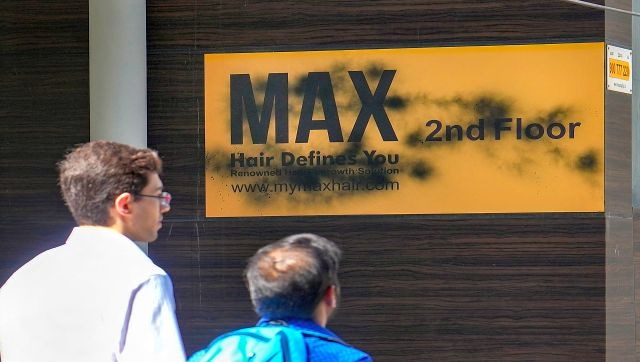What is the 60% Kannada rule that led to vandalism of stores in Bengaluru?
What is the 60% Kannada rule that led to vandalism of stores in Bengaluru?

India’s IT capital, Bengaluru, witnessed violence on Wednesday when activists vandalised signboards and hoardings of business establishments that were in English, reigniting the language row in the city.
Shortly after the incident, Union minister Pralhad Joshi, when asked about it, said that while he did not agree with the violence, he did agree with the demand that shop signages in Karnataka should be predominantly in the local language. “Everybody should be able to read the signs and not everyone can read English. What is the harm in writing in Kannada as well as in English or another language, like Hindi? This is not England,” the minister, who is also an MP from Dharwad, told NDTV.
But what exactly is the language row in Karnataka and why did violence flare up on Wednesday? Here’s what we know.
What is the 60% Kannada rule?
Earlier on Christmas, the Bengaluru civic body passed a directive asking all stores to have signboards, with at least 60 per cent of them being in Kannada. Tushar Giri Nath, chief commissioner of Bruhat Bengaluru Mahanagara Palike (BBMP), had then said that commercial stores in the civic body’s jurisdiction will face legal action if they fail to follow the signboard order.
He had said that a survey would be carried out of all the stores in the area and those who do not use 60 per cent Kannada would be given a notice. After issuing the notice, they would be given time until 28 February to implement Kannada language nameplates and submit compliance to the respective zone commissioners.
He then added, “Legal action will be taken against shops that do not install Kannada nameplates by 28 February. Accordingly, store fronts that do not use Kannada language on nameplates will be suspended as per the law and then their licence will be cancelled.”
Following the diktat, store owners said that they would abide by the rule, with one of them telling NDTV, “If there is an order to change the signboards, we will do it. If they want 60 per cent, we will get it done.”
The Federation of Karnataka Chambers of Commerce and Industry in reaction to the order had said that it would ask all its members to follow the rule, but requested that the government take no action until the deadline.

Then what happened on Wednesday?
Following the diktat, on Wednesday (27 December), members of Karnataka Rakshana Vedike – a pro-Kannada group – carried out a protest-cum-awareness campaign, asking stores to change their signboards.
However, the rally quickly descended into chaos when the members began pulling down store signages, which were in English. According to reports, more than 1,000 people had gathered on Airport Road to protest the absence of Kannada boards.
#WATCH | Bengaluru: Kannada Raksha Vedhike holds a protest demanding all businesses and enterprises in Karnataka to put nameplates in Kannada. pic.twitter.com/ZMX5s9iJd0
— ANI (@ANI) December 27, 2023
The protesters were seen vandalising the signboard of the multi-city hotel chain Bloom. They were also seen entering the hotel premises chanting pro-Kannada slogans. Videos from the rally also showed protesters spraying black ink on English letters. Several protesters, mostly wearing yellow and red scarves (the colours of the Kannada flag), stormed into businesses and tore down English signage.
Several big stores and franchises were targeted during the protest. For instance, Starbucks, Third Wave Coffee, Theobroma, House of Masaba, McDonald’s saw their signages being damaged. Protesters also targeted the Mall of Asia in Hebbal, smashing flower pots and vandalised English signboards in the complex.
English signboards destroyed on Lavelle Road. Where are the cops!!
At least 20 shops!! pic.twitter.com/1TwoOFMaVM
— Aral Lobo (@aralalobo) December 27, 2023
Phoenix Marketcity in Whitefield, another major mall in the city, also downed its shutters early, reported the Hindustan Times.
KRV president Narayana Gowda, said during the vandalism, “We are not saying Gujaratis, Sindhis or Marwadis can’t work here, but the usage of our mother tongue to represent that work is essential.”
Gowda had earlier been quoted as saying, “People from various states are doing business in Bangalore. But they don't put Kannada nameplates on their shops. They are only putting up the nameplates of their shops in English. If they want to stay back in Bangalore then they have to put nameplates on their shops in Kannada or else they have to move from Karnataka to other states.”

How has the government reacted?
The Bengaluru Police later detained around 500 protesters including the faction’s chief T A Narayana Gowda. They also registered five FIRs.
#WATCH | Police detained members of Karnataka Rakshana Vedike, protesting to deliver messages to owners of many malls, shops, commercial buildings, companies and factories, especially multinational companies to install Kannada sign boards and give more visibility to the Kannada… pic.twitter.com/tRjsPidLbB
— ANI (@ANI) December 27, 2023
On Wednesday, Chief Minister Siddaramaiah said, “I don’t know what they (the protesters) are doing. I have got information that Narayana Gowda is protesting about having Kannada name boards. We will take action against those who took the law into their own hands and went against the law.”
Meanwhile, Deputy Chief Minister DK Shivakumar, who is also the Bengaluru Development Minister, said that stores should follow the rules. “For those living and doing business in Bengaluru, there is a law which says signages should have 60 per cent Kannada in them. Everyone should follow it.”
What is Karnataka’s language row?
The vandalism and protests in Bengaluru is just another chapter in Karnataka’s language row. For far too long, there’s been a debate on the usage of Kannada in the state, with many insisting that it should be the language spoken by all in the state.
Earlier in October, Chief Minister Siddaramaiah had emphasised the importance of learning Kannada. “While it is impossible to exist in states like Tamil Nadu, Kerala, Telangana and Uttar Pradesh without learning the local language, you can survive in Karnataka even if you don't speak Kannada,” he had said at an event in October.
“Instead of Kannadigas teaching our language to others, we are learning their language first,” he added.
In his earlier tenure as chief minister, Siddaramaiah had pushed for wider use of Kannada and even taken steps to ensure it. A government body had been set up to promote Kannada and it had given bank officials only six months to learn the language.
Notably, it was during Siddaramaiah’s earlier tenure that Hindi names of Bengaluru metro stations were targeted and covered with tape.
With inputs from agencies
What's Your Reaction?

























































